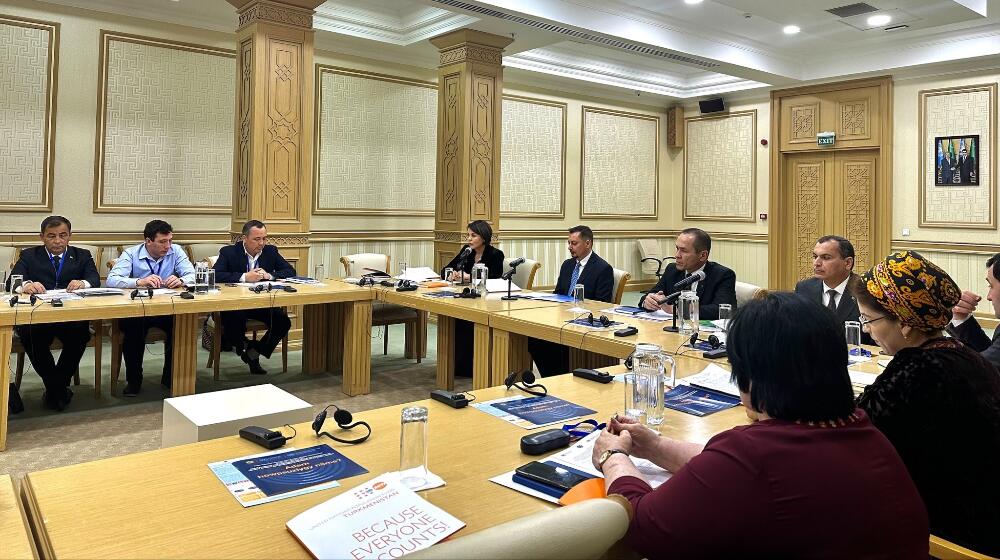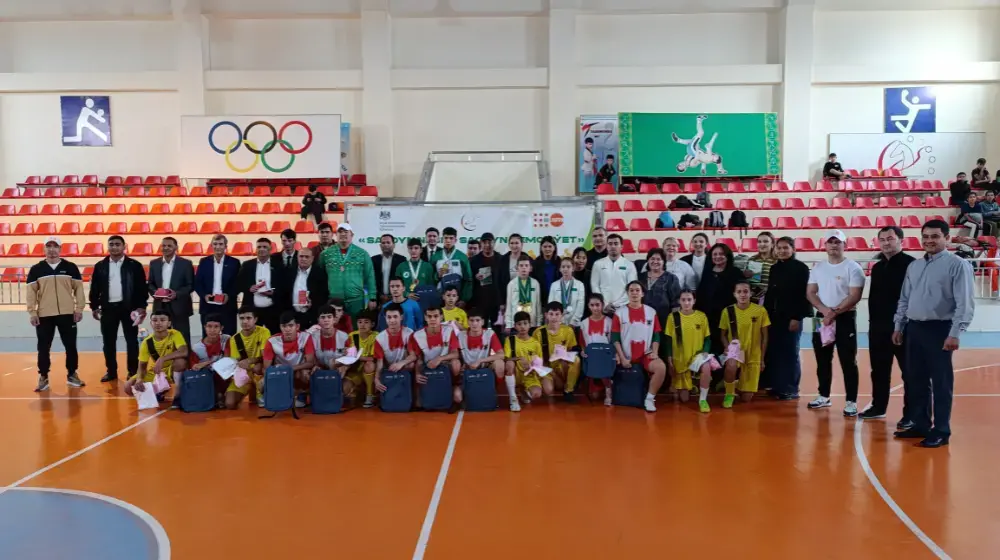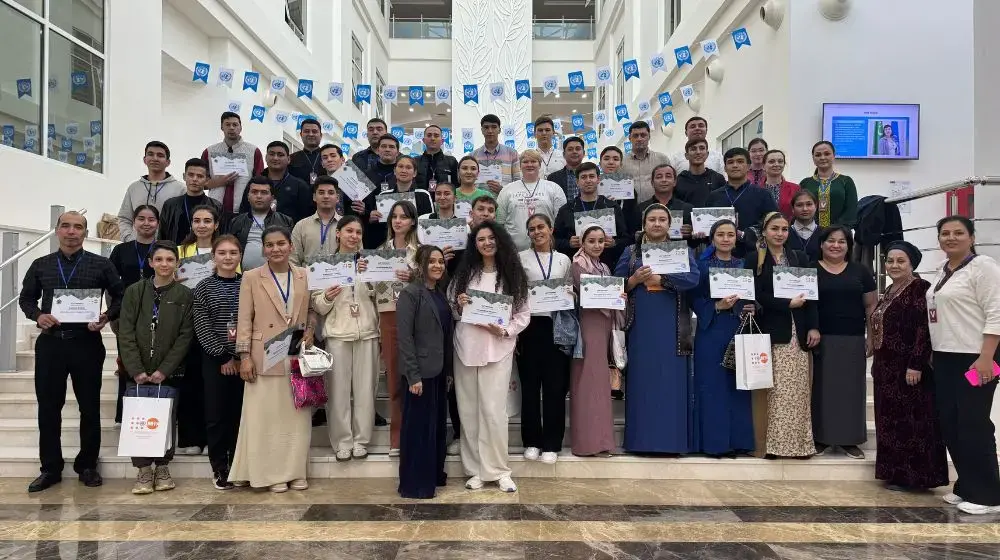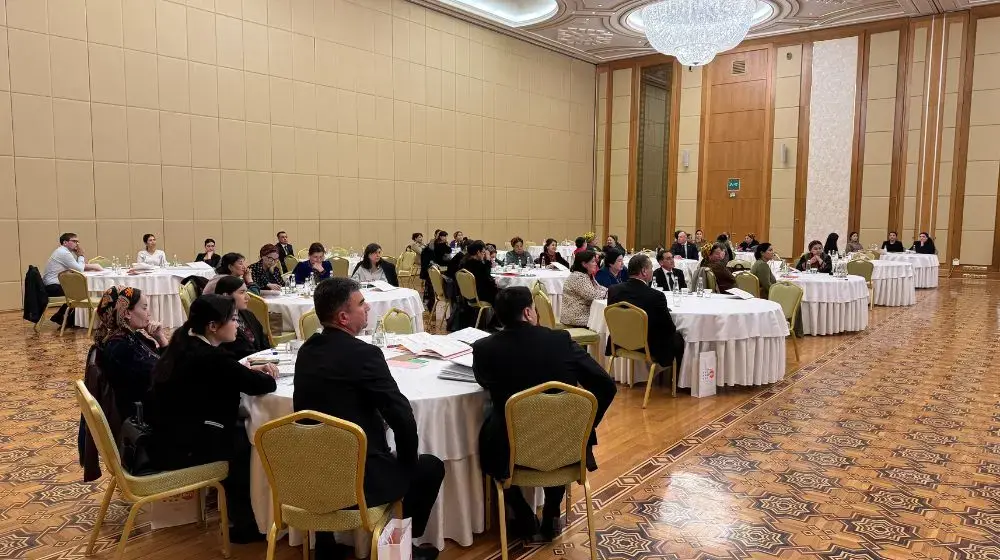Ashgabat 20 April 2023 – The Steering Committee convened a meeting to discuss the results of the
The Joint Programme focused on raising awareness about application of Human Security concept as a critical approach in times of global crisis through enhancing the capacity of national and sub-national (velayat) state bodies and public organizations to apply the concept of Human Security in the effective implementation of measures to protect the population against the multi-dimensional risks of the pandemic while engaging young people in inclusive decision-making platforms and processes. In addition, the Joint Programme aimed at empowering the youth through enhancing awareness, capacities and skills to build social partnership with local authorities in the implementation of community-based initiatives in Lebap and Dashoguz regions. All interventions under the Joint Programme were formulated in line with the Human Security approach, which is based on the core vision to achieve freedom from fear, want and indignity and emphasizes the triangular relationship between security, development and human rights.
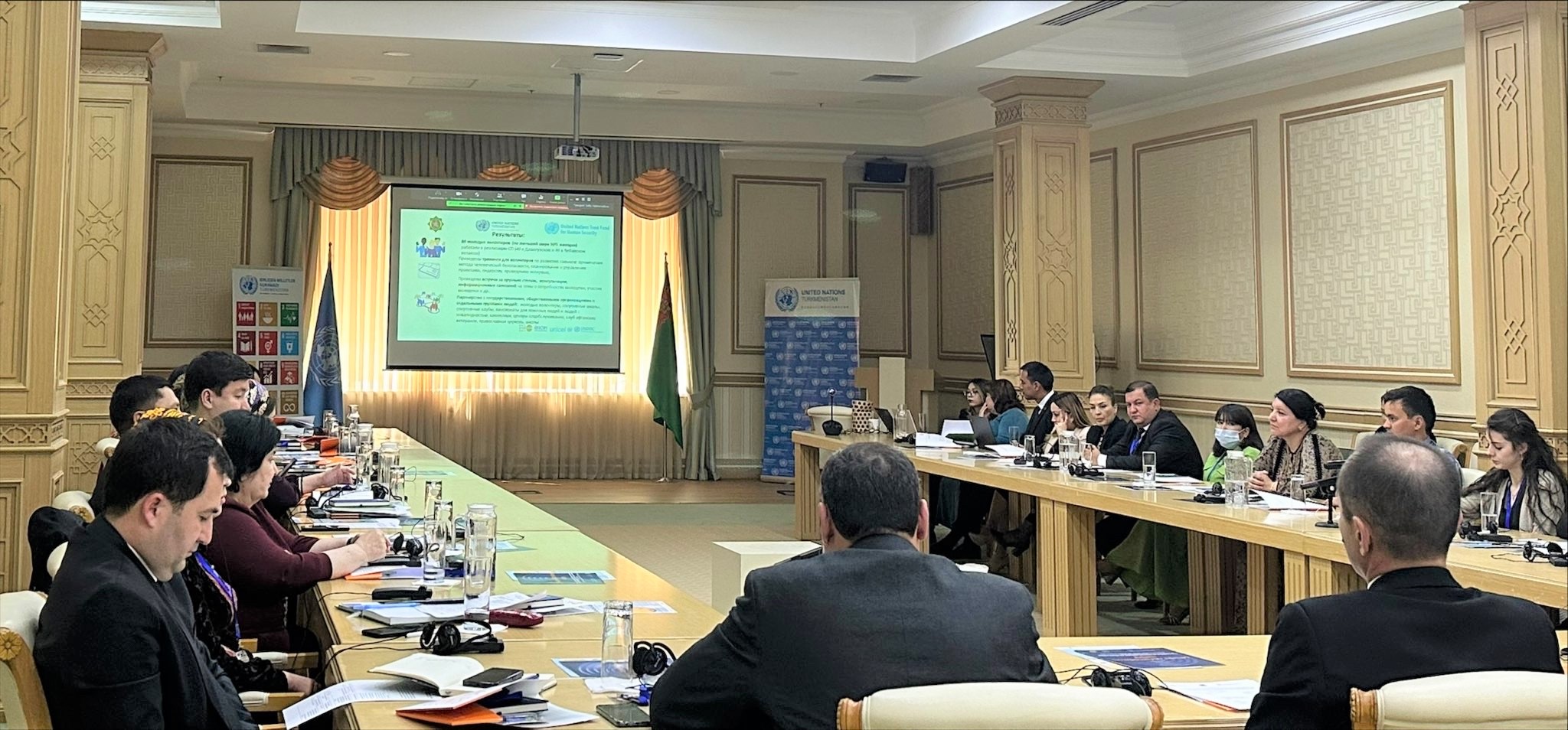
Mr. Dmitry Shlapachenko, UN Resident Coordinator in Turkmenistan underlined that “The Programme also introduced new ways of working, starting from the consultative processes with young people – who were given the novel position of main stakeholder of the Programme – and the co-design of community initiatives with youth, to the establishment of Local Boards in Lebap and Dashoguz, which brought together a range of state institutions, public organizations and community members, to learn about human security, identify the priority issues for community interventions, and to work together with the young people on delivering the initiatives”.
The meeting gathered the decision making level participants from various ministries, agencies and public organizations that were involved in the JP realization. The objective of the Steering Committee meeting was to present the results of the Joint Programme and highlight achievements, challenges, lessons learned and the way forward. In addition to sharing the Joint Programme’s results, the findings of the assessment of the JP implementation were presented and the participants, including the youth volunteers from the Dashoguz and Lebap regions that were part of the Programme’s implementation shared their experiences.
It was emphasized that applying the human security approach to the interventions of the Joint Programme made the responses to insecurities more interconnected and systematic. During the meeting,
- Partnerships with the government, public organizations, social service centers, sports schools, secondary schools were strengthened and focused on the most vulnerable population groups. Empowerment of young people by creating youth volunteer networks and space for positive youth contribution, youth leadership and local community activities through forming a youth reference group, which was trained to work on community initiatives in Dashoguz and Lebap regions It was recommended to continue using the capacity of the youth volunteers and maintaining their network, continuing dialogue between the UN and the Government on all levels, continued capacity building on human security approach, replicating community initiative experience on other areas of work as well as replicating multi-agency approach in other programmes and other.
- The concept of human security was introduced in the context of the country by capacity building training held for the state and CSO public service providers and representatives of local municipalities, doctors, police workers, teachers, social workers, youth specialists, sports coaches and migration specialists.
- Application of a human security approach to community initiatives in the two selected regions increased understanding and raised awareness of the human security approach and revealed new ways of working when community initiatives were co-designed with young people, were context specific, followed bottom-up approach, considered intergenerational linkages and prevention measures;
- Among the materials that were produced within the JP, the Manual on Human Security Approach, Brochures on Human Security approach, Book of Human Life Stories, Advice for the Older Persons on Healthy Aging were mentioned. These materials aimed at raising awareness on the human security approach and spotlighting the areas that needed most attention from the point of view of the two communities
Participants stressed that the results of the Joint Programme complemented and enriched the interventions and mechanisms that are needed for attaining the Sustainable Development Goals.
“By applying the human security approach, communities can demonstrate their concern for protecting human life and dignity. The Joint Programme advocated the human security approach by implementing initiatives at the local level” highlighted Ms. Shahrbanou Tadjbakhsh, International Technical Advisor on human security within the framework of the Joint Programme.
Ms. Kana Kudo, Programme Management Officer of the United Nations Human Security Unit emphasized “We were particularly impressed to see how the Joint Programme developed the intergenerational dialogues to ensure vulnerable populations including both youth and elderly populations are empowered in order to develop practical and integrated solutions to address the needs and challenges that people face and to reduce their vulnerabilities. The Programme has employed an essential Human Security Strategy by involving youth and others from government and communities to strengthen protection mechanisms and participatory approach. This collaborative action has fostered the social cohesion, new partnerships that provide foundation to sustainable development and resilience”.
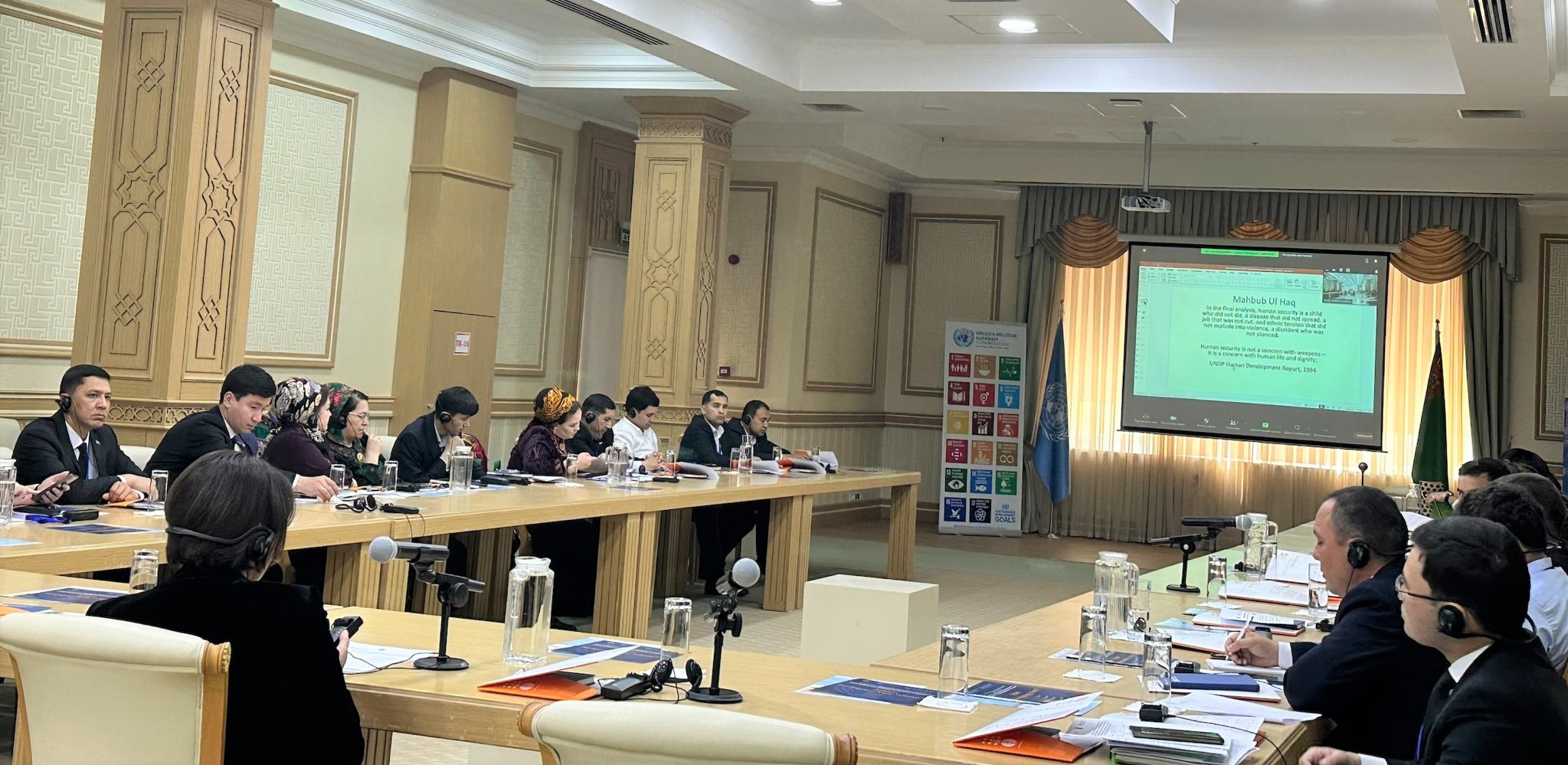
Please read:
Please watch:
What is Human Security? Meryem's Story
Implementation of the UN-Government Joint Programme on Human Security in Turkmenistan
Results of the UN-Government Joint Programme on Human Security in Turkmenistan
For more information, please contact:
Mehri Karakulova
UNFPA National Programme Analyst on Gender and Youth
Ogulgerek Annayeva
UNFPA Programme Analyst, Communications
About UNFPA:
UNFPA's mission is to deliver a world where every pregnancy is wanted, every childbirth is safe and every young person's potential is fulfilled.

